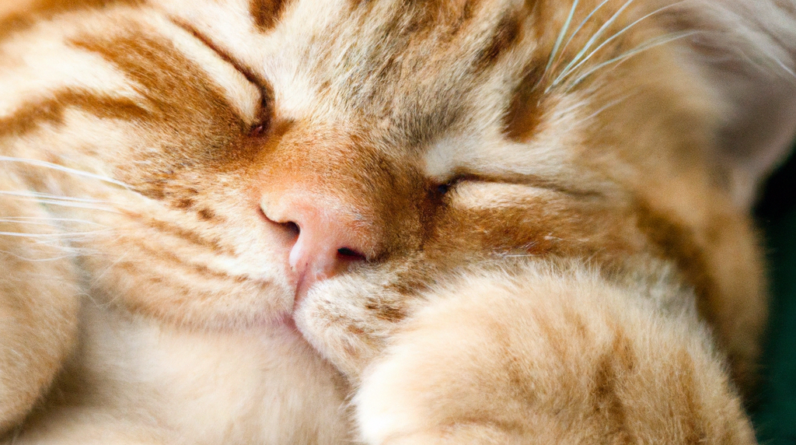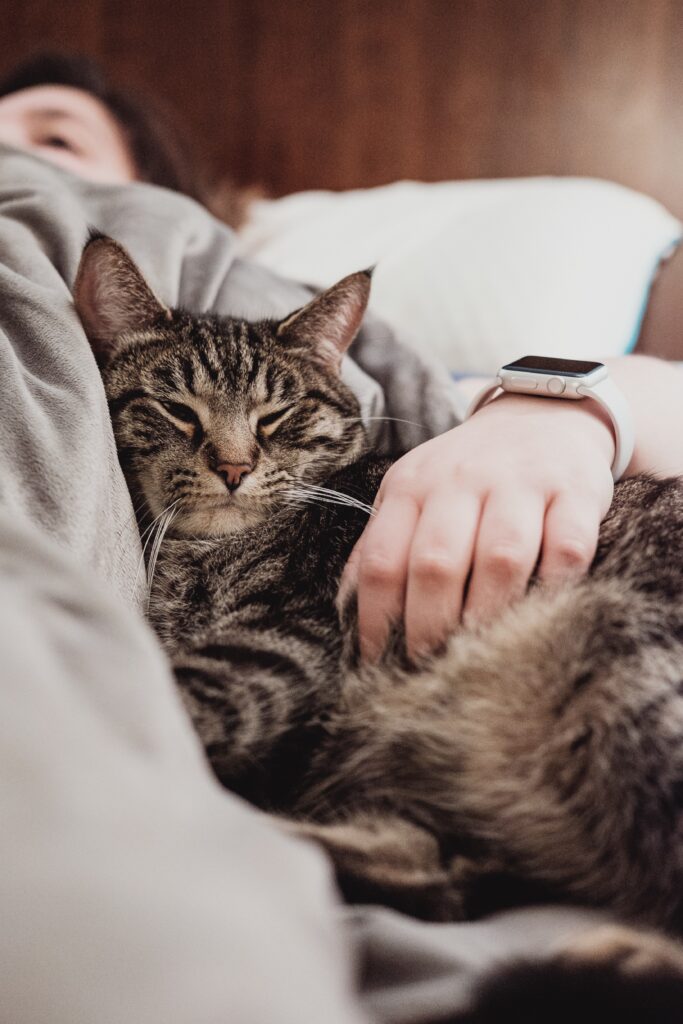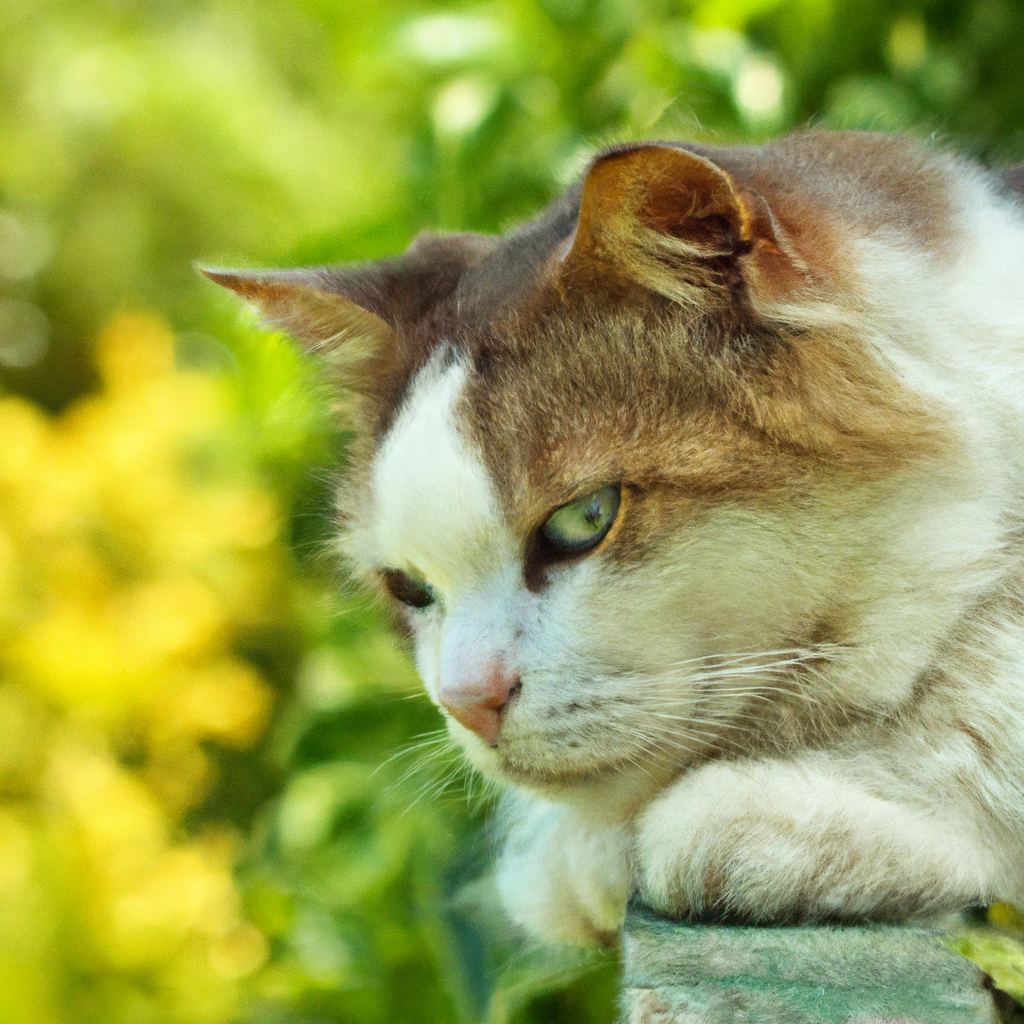
Ever wondered how long your beloved feline companion will be by your side? If you’ve found yourself pondering the average lifespan of a domestic cat, you’re in the right place. Join us as we explore this intriguing topic and uncover the factors that can influence the length of your cat’s life. From genetics to lifestyle choices, we’ll provide insights and tips to help ensure your furry friend enjoys a long and happy existence. So, grab a cup of tea and settle in as we navigate the fascinating world of the average lifespan of a domestic cat.
Table of Contents
Factors Affecting Lifespan
Breed
The breed of a cat can greatly impact its lifespan. Some cat breeds, such as the Siamese or Abyssinian, are known for their longevity and can live well into their late teens or even early twenties. On the other hand, certain breeds, like the Persian or Ragdoll, are prone to certain health issues that can shorten their lifespan.
Genetics
Genetics plays a significant role in determining a cat’s lifespan. Just like in humans, some cats may be genetically predisposed to certain health conditions or diseases that can affect their lifespan. By understanding the genetic history of a cat and any potential health risks, owners can take proactive measures to ensure their cat lives a long and healthy life.
Healthcare
Providing regular healthcare for your cat is essential for their overall wellbeing and longevity. Routine veterinary check-ups, vaccinations, and preventive care, such as flea and tick control, are crucial in maintaining your cat’s health. Regular check-ups allow for early detection and treatment of any potential health issues, increasing the chances of a longer lifespan.
Diet and Nutrition
Proper nutrition is vital for cats to live a long and healthy life. Feeding your cat a balanced and appropriate diet can help prevent obesity and various health conditions such as diabetes, kidney disease, and heart problems. Consult with your veterinarian to determine the best diet for your cat’s specific needs, taking into account their age, weight, and any health conditions they may have.
Exercise and Activity
Regular exercise and physical activity are essential for maintaining your cat’s overall health and longevity. Providing opportunities for play, such as interactive toys or using a laser pointer, encourages physical exercise and mental stimulation. Cats that are active and engaged are less likely to become overweight or develop behavioral issues, leading to a longer lifespan.
Environmental Factors
The environment in which a cat lives can have a significant impact on its lifespan. Indoor cats generally have a longer lifespan compared to outdoor cats, as they are protected from risks such as traffic accidents, predation, and exposure to diseases. Creating a safe and enriching indoor environment, with plenty of climbing, scratching, and hiding spots, can ensure your cat lives a longer and more fulfilling life.
Average Lifespan of Domestic Cats
By Breed
The average lifespan of domestic cats can vary depending on their breed. While some breeds are known to live well into their late teens or early twenties, others may have a shorter lifespan. For example, Siamese cats have an average lifespan of 15 to 20 years, while Burmese cats tend to live around 10 to 12 years. Researching the average lifespan of a specific breed can help you understand the potential longevity of your feline companion.
In General
On average, domestic cats live between 12 and 15 years. However, with proper care and attention to their health needs, they can live well into their late teens or early twenties. Providing a balanced diet, regular exercise, routine veterinary care, and a safe environment are crucial for maximizing a cat’s lifespan.
Cats with Special Needs
Some cats may require extra care due to special needs or health conditions that can impact their lifespan. For instance, cats with chronic illnesses such as diabetes or renal disease may have a shorter lifespan. However, with proper management of their condition and regular veterinary care, cats with special needs can still live happy and fulfilling lives.

Signs of Aging in Cats
Physical Changes
As cats age, they may experience various physical changes. These changes can include graying of the fur, a decrease in muscle mass, and the development of age-related conditions such as arthritis. It is important to monitor these physical changes and provide appropriate care and accommodations to ensure your cat remains comfortable and happy as they age.
Behavioral Changes
Aging can also lead to behavioral changes in cats. They may become less active, sleep more, or show signs of cognitive decline, such as disorientation or forgetfulness. It is essential to provide mental and physical stimulation for your aging cat, as well as patience and understanding as they adjust to these changes.
Health Issues
As cats age, they become more susceptible to certain health issues. Common age-related health problems in cats include dental disease, kidney disease, hyperthyroidism, and heart disease. Regular veterinary check-ups and early detection of these health issues are crucial in providing appropriate treatment and ensuring your cat’s longevity.
Tips for Increasing Cat Lifespan
Regular Veterinary Check-ups
Bringing your cat to the veterinarian for routine check-ups is essential for maintaining their health and extending their lifespan. These check-ups allow veterinarians to detect any potential health issues early on, providing the opportunity for timely treatment and management.
Proper Nutrition
Feeding your cat a balanced and nutritious diet is key to their overall health and longevity. Consult with your veterinarian to determine the best diet for your cat’s specific needs, taking into account their age, weight, and any health conditions they may have. Avoid overfeeding and provide portion control to prevent obesity, which can lead to various health problems.
Provide Mental and Physical Stimulation
Engaging your cat in both mental and physical activities is important for their overall well-being. Provide toys and interactive games that stimulate their senses and encourage exercise. Puzzle toys, treat-dispensing toys, or even dedicated playtime with your cat can help keep them mentally sharp and physically active.
Maintain a Safe Environment
Creating a safe environment for your cat is crucial for their longevity. Ensure your home is free of hazards such as toxic plants, chemicals, or open windows and balconies. Provide scratching posts, vertical spaces to climb, and hiding spots to fulfill their natural instincts and reduce stress.
Preventive Care
In addition to regular veterinary check-ups, preventive care measures such as vaccinations, parasite control, and dental care are crucial for ensuring your cat’s overall health and longevity. Consult with your veterinarian to determine the appropriate preventive care regimen for your cat based on their specific needs.
Early Detection of Health Issues
Being vigilant and observant of any changes in your cat’s behavior or physical appearance can help identify potential health issues early on. Keep an eye out for signs of pain, changes in appetite or litter box habits, and any unusual behaviors, and consult your veterinarian if you have any concerns. Early detection and treatment can significantly impact your cat’s lifespan and quality of life.

Common Factors Influencing Longevity
Neutering/Spaying
Neutering or spaying your cat is an essential step in promoting their overall health and longevity. Spaying female cats reduces the risk of reproductive-related health issues, such as uterine infections and certain types of cancer. Neutering male cats can prevent testicular cancer and reduce the risk of other health issues such as prostate problems.
Indoor vs Outdoor Cats
Allowing your cat to live indoors significantly increases their average lifespan compared to outdoor cats. Outdoor cats face numerous risks, including exposure to predators, traffic accidents, and the transmission of diseases. Keep your cat safe by providing supervised outdoor time or creating an enclosed outdoor space to satisfy their desire for fresh air and exploration.
Medical Conditions and Diseases
Certain medical conditions and diseases can significantly impact a cat’s lifespan. Chronic conditions such as diabetes, renal disease, or hyperthyroidism require ongoing management and treatment. Timely intervention and proper care can help ensure longevity for cats with medical conditions.
Accidents and Injuries
Accidents and injuries can have a devastating impact on a cat’s lifespan. This includes falls from heights, encounters with wild animals, or accidents involving vehicles. Providing a safe and enclosed environment, such as a secure backyard or an indoor space with supervised outdoor access, can greatly reduce the risks of accidents and injuries.
Factors to Consider When Adopting a Cat
Lifespan Expectancy
Before adopting a cat, it is essential to consider their expected lifespan. Different breeds and individuals may have varying lifespan expectancies. Assessing the commitment required for the potential lifespan of a cat can help ensure a long and fulfilling relationship.
Health History and Genetic Testing
Understanding the health history of a cat and any potential genetic risks is important when considering adoption. Some breeds may be predisposed to certain health conditions, and genetic testing can provide valuable information about potential health risks. This knowledge enables you to make informed decisions and provide appropriate care that can positively impact a cat’s lifespan.
Longevity of the Breed
Certain cat breeds have a reputation for longer lifespans compared to others. Researching the average lifespan of different breeds can help you choose a cat that aligns with your expectations and lifestyle.
Lifestyle and Environment
Consider your lifestyle and living environment when adopting a cat. Some cats may thrive in an active household with plenty of stimuli, while others may prefer a quieter and more predictable environment. Matching the cat’s needs and energy levels with your lifestyle can ensure a harmonious and long-lasting companionship.
Commitment and Responsibility
Adopting a cat is a significant commitment and responsibility. Cats require proper care, attention, and resources for their entire lifespan. Assess your ability to provide a stable and nurturing environment, as well as the financial means to cover their medical expenses and daily needs, before bringing a cat into your home.

Coping with the Loss of a Cat
Grief and Bereavement
Losing a beloved cat can be incredibly difficult and emotionally challenging. The grief experienced after the loss is valid and unique to each individual. It is important to allow yourself time to grieve and process the loss, seeking support from friends, family, or professional counselors if needed.
Honoring the Cat’s Memory
Honoring the memory of a cherished cat can provide comfort and closure. Consider creating a memorial, such as a photo album or a special tribute, to celebrate their life and the bond you shared. Planting a tree or making a donation to an animal welfare organization in their name can also be meaningful ways to honor their memory.
Support and Professional Help
If the grief and emotional distress become overwhelming or prolonged, seeking professional help from therapists or grief counselors experienced in pet loss can be beneficial. They can provide guidance and support during the grieving process, helping you navigate the complex emotions associated with losing a cat.
Conclusion
Understanding the various factors that can influence a cat’s lifespan is crucial for providing the best care possible. Breed, genetics, healthcare, diet, exercise, and the environment all play significant roles in determining the longevity of our feline companions. By taking proactive measures such as regular veterinary check-ups, a proper diet, mental and physical stimulation, and a safe environment, we can enhance their quality of life and increase their lifespan. Additionally, considering factors such as breed longevity, health history, and our ability to commit to a cat’s lifelong care before adoption ensures a fulfilling and long-lasting companionship. And in the unfortunate event of their passing, coping with grief and keeping their memory alive can provide healing and closure. With the right knowledge, care, and love, we can help our cats live their best and longest lives possible.

